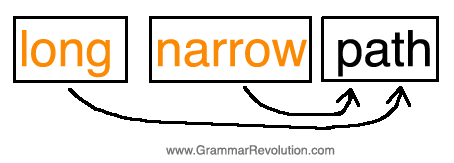

If you notice, all three definitions say ‘two or more’.

A solitary independent clause can’t be a coordinate clause. What do we infer from above definitions of coordinate clause?ġ. This is essentially in line with the other three. The book then mentions that the sentence Ann applied for a grant and they gave her $50,000 has two coordinate clauses. The book doesn’t provide a definition of coordinate clause, but it mentions that ‘in a compound sentence the immediate constituents are two or more COORDINATE clauses’. The Cambridge Grammar of the English Language by Rodney Huddleston and Geoffrey K. We might go to Seattle, or we might go to California. John likes hamburgers, but Mary prefers hot dogs. clause), what Oxford Learner’s Dictionary says. That’s similar to, but more precise than ( part vs. Merriam-Webster DictionaryĪccording to Merriam-Webster Dictionary, a coordinate clause is ‘one of two or more clauses in a sentence that are of equal importance and usually joined by and, or, or but’. It says that the sentence It stopped raining and the sun came out contains following two coordinate clauses: It stopped raining and the sun came out. Now, parts is bit vague, but the dictionary clarifies through an example. Oxford Learner’s DictionaryĪccording to Oxford Learner’s Dictionary, a coordinate clause is ‘each of two or more parts of a sentence, often joined by and, or, but, etc., that make separate statements that each have an equal importance’. Let’s start with what these four sources say on coordinate clause. Almost all support first of the above three understandings, but there is more to coordinate clauses. I went through couple of reliable sources – grammar books, dictionaries, and glossaries – to find out their take on the topic. Note that the clause is inclusive of but.

The above sentence contains one coordinate clause: But he couldn’t clear the fence. The above sentence contains one coordinate clause: He couldn’t clear the fence.ģ. The above sentence contains two coordinate clauses: Tom hit the ball hard and He couldn’t clear the fence.Ģ. Let’s list few prevailing understandings with this example sentence: Tom hit the ball hard, but he couldn’t clear the fence.ġ. There is plenty of confusion over what constitutes a coordinate clause.


 0 kommentar(er)
0 kommentar(er)
